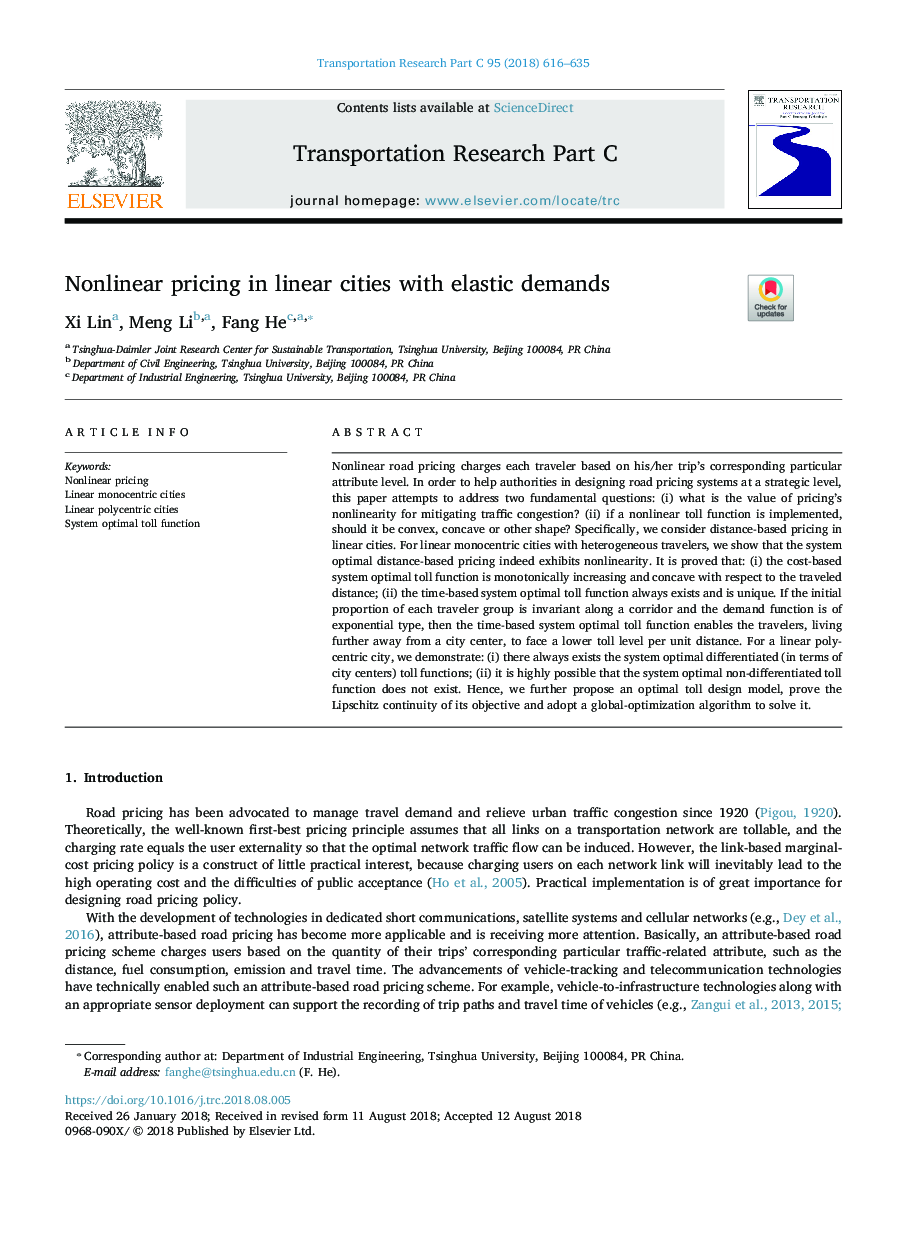| Article ID | Journal | Published Year | Pages | File Type |
|---|---|---|---|---|
| 11002823 | Transportation Research Part C: Emerging Technologies | 2018 | 20 Pages |
Abstract
Nonlinear road pricing charges each traveler based on his/her trip's corresponding particular attribute level. In order to help authorities in designing road pricing systems at a strategic level, this paper attempts to address two fundamental questions: (i) what is the value of pricing's nonlinearity for mitigating traffic congestion? (ii) if a nonlinear toll function is implemented, should it be convex, concave or other shape? Specifically, we consider distance-based pricing in linear cities. For linear monocentric cities with heterogeneous travelers, we show that the system optimal distance-based pricing indeed exhibits nonlinearity. It is proved that: (i) the cost-based system optimal toll function is monotonically increasing and concave with respect to the traveled distance; (ii) the time-based system optimal toll function always exists and is unique. If the initial proportion of each traveler group is invariant along a corridor and the demand function is of exponential type, then the time-based system optimal toll function enables the travelers, living further away from a city center, to face a lower toll level per unit distance. For a linear polycentric city, we demonstrate: (i) there always exists the system optimal differentiated (in terms of city centers) toll functions; (ii) it is highly possible that the system optimal non-differentiated toll function does not exist. Hence, we further propose an optimal toll design model, prove the Lipschitz continuity of its objective and adopt a global-optimization algorithm to solve it.
Keywords
Related Topics
Physical Sciences and Engineering
Computer Science
Computer Science Applications
Authors
Xi Lin, Meng Li, Fang He,
